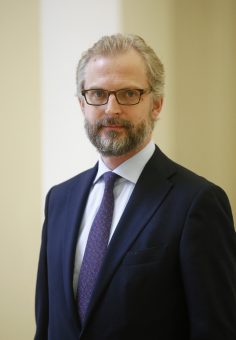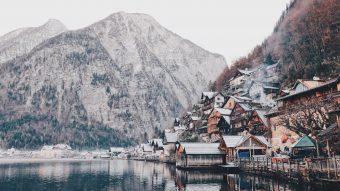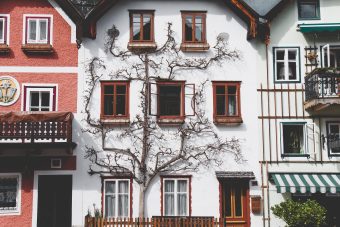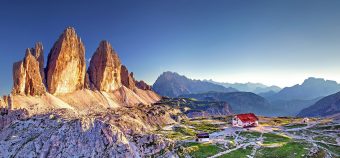
The sustainable development is a goal which the Austrian government aims for, and there are certain areas where that goal has been almost completely achieved. Austria holds a PEFC certificate for sustainable forestry for over 90% of their forest, so when we talked to the ambassador of Austria to Serbia Nikolaus Lutterotti we wanted to know more about the progress in other sectors as well as about the fields of responsibility of the Ministry of Sustainability.
EP: According to EPI ranking for this year, Austria made a step forward in the last two years having reached the eighth place. What actions have been taken to achieve this?
Nikolaus Lutterotti: The Environmental Performance Index EPI is a very complex assessment of environmental trends and progress. Twenty-four performance indicators across ten issue categories are used for the ranking of the countries. Therefore, we are happy to see that the continuous improvement in environmental protection in Austria is internationally recognised. On the other hand, we need to remain realistic, because we know that it is difficult to make such international comparisons.
Austria took great efforts in many areas of its environmental policy: climate protection, waste prevention and waste management, wastewater treatment, public transport, alternative energies, Eco-taxes and energy efficiency.
We increased the amount of Eco-taxes from 7,087 million € in 2005 to 9,052 million € in 2016 (which includes energy taxes, transport taxes, environmental pollutions taxes, resource taxes). Resource efficiency in Austria has increased by more than 30% since 2000. Absolute resource consumption decreased in the period 2000 – 2015, in particular since 2006, by a total of 6.1%.
Where we still have problems to solve is traffic and mainly the transit traffic. Austria is in the centre of Europe, and so transit routes go through our country.

EP: The survey conducted by Mercer, an international consulting firm, has shown that there’s no place in the world where life is as good as it is in Vienna. Are the other cities in Austria following Vienna’s example?
Nikolaus Lutterotti: The Mercer’s Quality of Living City ranking is based on indicators such as the economic, natural, political, social, socio-cultural environment, medical and health considerations, public services and transport, housing, consumer goods, schools& education and recreation.
You must take into account that the study concentrates on opinions of expats. From a total of 231 large cities, Vienna is the only Austrian city which is being analysed in the Mercer Quality of Living ranking.
All other Austrian cities also put great emphasis on the quality of life for locals and the quality of experiences for visitors and perform very well in the before mentioned categories. So surely Vienna is an excellent place to live, but it is only fair to say that life in other cities such as Graz, Salzburg or Innsbruck is equally comfortable, maybe even more.

EP: At the beginning of 2018 the Federal Ministry of Agriculture, Forestry, Environment and Water Management (BMLFUW) has become the Federal Ministry for Sustainability and Tourism. What is the most important aspect that entwines all these sectors?
Nikolaus Lutterotti: The BMNT has indeed an extensive broad authority, covering agriculture, forestry, water, environment, mining, energy and tourism. However, when you have a closer look at these responsibilities, you will realise that they are essential for sustainable life and for the development of the rural areas. All these fields of work are linked, and they deal with the resources of our livelihood. You need clean air, soil and water to produce healthy food in our agriculture and you need sustainable forests to construct houses, furniture and biomass. Forests are responsible for cleaning the air, water and they produce oxygen. Green energy production saves CO2 emissions and creates new jobs in the countryside. So, the BMNT is indeed a Ministry of Sustainability.

EP: What are the most essential elements of the 2017 Waste Prevention Programme?
Nikolaus Lutterotti: The action areas under the Waste Prevention Programme 2017 are the prevention of construction and demolition waste, waste prevention in enterprises, organisations and households, as well as making it possible to reuse a product. Waste prevention is a concept that is designed to impact mainly on planning, production and demand fulfilment. For each action area, there are huge packages of measures.
Just to give some examples such are promotion of low waste construction techniques and pilot projects, promoting to repair, reuse and recycling designs in design curricula, development of reusable packaging, information campaigns for consumers (reusable drinks packaging, carrier bags, eco-labels), incentives for enterprises to prevent feed waste and nationwide campaign creating awareness in households.
You can find more detailed information about the Austrian Waste Prevention Programme on the following website: www. bmnt.gv.at/umwelt/abfall-ressourcen.
EP: Recently, many kinds of research have shown that tourism significantly contributes to climate change consequences. Are there data on how much the tourism in your country affects the environment?
Nikolaus Lutterotti: Tourism means that people must travel from their home to a holiday destination and this produces emissions. However, most of our guests come from neighbouring countries, so the distances are not too far.
Austria puts great importance on the development of sustainable tourism products. These include the provision of sustainable modes of transport (e.g. “last mile” mobility solutions including free local transportation and guest taxis) as well as the use of local products. In hotels, saving water, energy and waste is a common practice.
Over recent years, the Ministry has supported these initiatives, and together with partners from the public and private sector, it has strengthened Austria´s position as a sustainable and eco-friendly destination for visitors from all around the world.
Tourism and mobility providers are working together to provide sustainable mobility solutions. One example is the transnational umbrella organisation Alpine Pearls, which joins together 25 Alpine villages in their quest for environmentally friendly mobility solutions and climate-friendly holidays. The association was the result of two successive EU projects (Alps Mobility and Alps Mobility II) which originated in an initiative by the Ministry. In the context of climate change, reduction measures such as the reduction of emissions and measures for resource efficiency are essential. In the development of a new Master plan for Austrian tourism, the Ministry also focuses on the challenges posed by climate change. This Master plan for the continued growth of sustainable and competitive tourism will be presented in the first quarter of 2019.

Prepered by: Tamara Zjacic
Read the whole interview in the new issue of the Energy portal Magazine on CLEAN ENERGY, December 2018. – February 2019.



